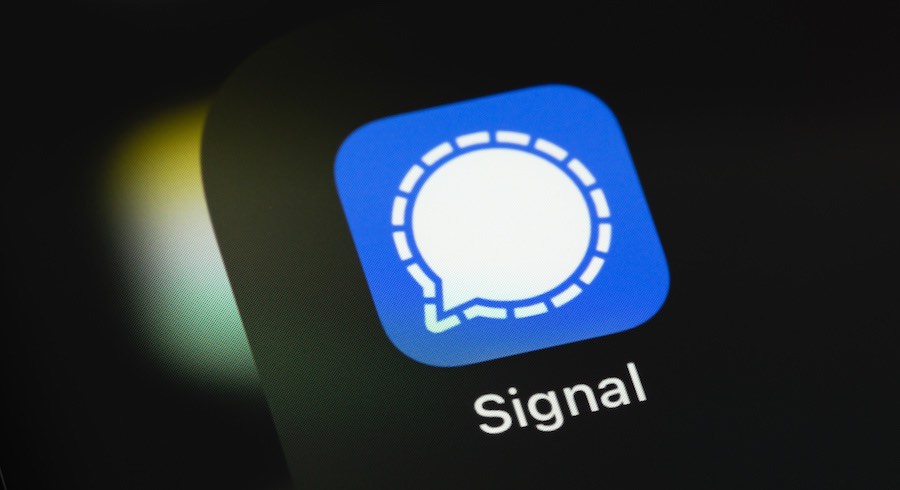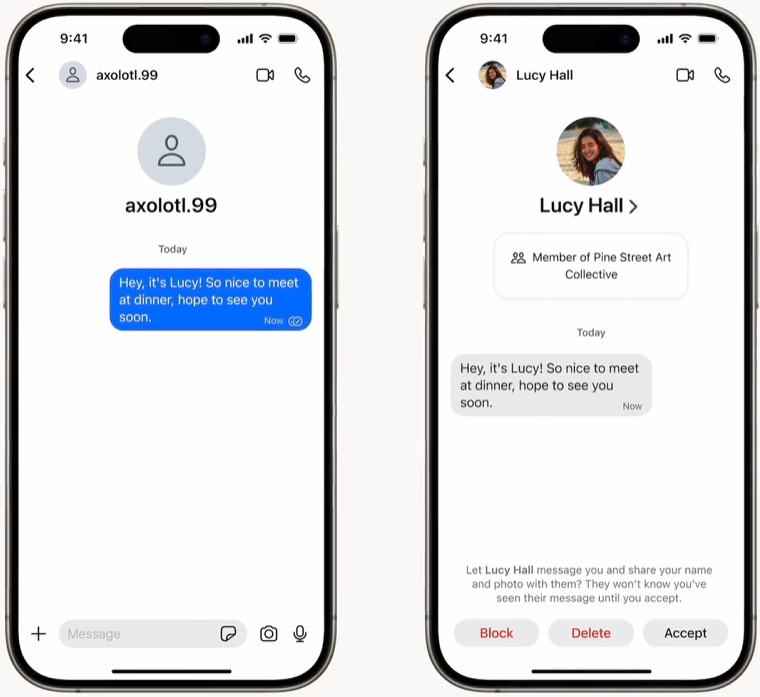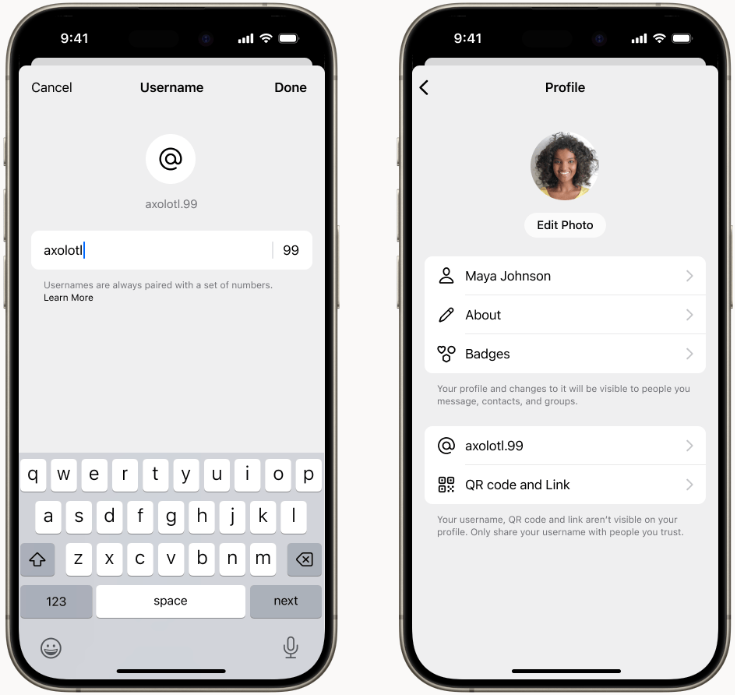
The Signal messenger app will soon begin rolling out usernames to replace phone numbers, making them the default option from now on.
This is a feature Signal engineers have been testing for a while now, and which RestorePrivacy highlighted in November 2023, when it reached the project’s pre-beta ‘Staging builds.’ Introducing usernames that allow users to hide their phone numbers from their contacts reduces sensitive data exposure, though submitting a phone number is still required during new account registration.
After five months of testing, the feature has reached beta and will be rolling out to all Signal users in the coming weeks.
Introducing usernames
Usernames on Signal are aimed at enhancing user privacy when communicating with others but are not meant to act as social media usernames, so they won’t serve as login keys or handles that can be searched. Also, existing contacts who already have your phone number will continue to see it, so usernames are more helpful when initiating a new connection.
Here are the main changes brought by the introduction of usernames on Signal:
- Usernames will now become the default visibility option, so phone numbers will be hidden from everyone you chat with on Signal.
- Signal users will be given the option to make their phone number non-discoverable, allowing others only to connect with them if they enter their exact username.
- The users’ profile photo and name will remain visible, but the phone number will be hidden by default.
- Communication parties will be allowed to initiate a new conversation only when both enter the exact username of the other user in the ‘New Chat’ bar.

All in all, usernames give Signal users more control over how they can be found and contacted and allow the hiding of sensitive personal information like phone numbers. Signal says this feature fully aligns with the project’s mission to provide secure and private communications.
How to set it up
To create a username, head to Settings → Profile, and click on the username to set a new one. Usernames can be created, shared, deleted, and changed at any time, but they need to be unique and include at least two numbers at the end to prevent spoofing.

Once a username is created, it can be used to connect with others by simply sharing it with them. However, the other person must also share their username in order for the conversation to be initiated. Since usernames aren’t searchable, this is to protect users from random communications by scammers, etc.
To avoid typing errors, Signal will also give the option of generating a QR code or URL that point to the username, and which can be shared instead.
If a username is changed after a conversation has taken place, old communication parties do not receive a notice or see the updated username on the communication channel, ensuring ultimate privacy.
Signal is a top-rated end-to-end encrypted communications app with a proven track record and a rich set of privacy-minded features. Read our in-depth review of the Signal app here.







Here’s how this messenger can be privacy-friendly.
1. You don’t need to give all of these permissions. Just the ones suitable to your usage. For instance, if you don’t need to share your GPS position with anyone, you don’t need to give location access. Same for cam, mic, etc.
2. Some of these permissions are from old versions of the app. Example: a while back, one could use Signal as an SMS app, which required SMS-related permissions. Not anymore. The list is misleading in this sense, for it accumulates the permissions required for the whole version history, not just the most recent one.
3.Privacy and security often boils down to managing trust in a complex chain of service providers and software. Pointing out that a software used for communication needs to access your communication resources (cam, mic, screen, keyboard, network, etc.), tells you nothing about whether you should trust that piece of software. That’s why (e.g.) being open-source matters (as well as having a good and consistent reputation among people able to verify that code).
4. If you’re suspicious about a particular permission, you can verify the justification provided here:
https://support.signal.org/hc/en-us/articles/360007062172-Signal-Permissions-OS-Notification-Settings
5. Make sure your threat model is compatible with Signal’s goals. If you’re just worried about massive surveillance for commercial purposes in a democratic country, Signal can help you. If you’re targeted by multiple intelligence agencies while living a country that shows no respect for basic human rights, perhaps having a smartphone is already too risky. Signal can’t do much for you if your phone is infected by malware.
HOW CAN THIS MESSENGER BE PRIVATE?
Signal Private Messenger: Angroid App permissions. Showing permissions for all versions of this app.
Signal Private Messenger app has access to YOUR:
1.Identity:
– find accounts on the device
– read your own contact card
– modify your own contact card
2. Calendar
– read calendar events plus confidential information
– add or modify calendar events and send email to guests without owners’ knowledge
3. Contacts
– find accounts on the device
– read your contacts
– modify your contacts
4. Location
– approximate location (network-based)
– precise location (GPS and network-based)
5. Message / SMS
– read your text messages (SMS or MMS)
– receive text messages (MMS)
– receive text messages (SMS)
– send SMS messages
– edit your text messages (SMS or MMS)
6. Phone
– directly call phone numbers
– read phone status and identity
7. Photos/Media/Files
– read the contents of your USB storage
– modify or delete the contents of your USB storage
8. Storage
– read the contents of your USB storage
– modify or delete the contents of your USB storage
9. Camera
– take pictures and videos
10. Microphone
– record audio
– signal_wifi_4_bar
– Wi-Fi connection information
– view Wi-Fi connections
11. Device ID & call information
– read phone status and identity
12. Other
– send WAP-PUSH-received broadcast
– receive data from Internet
– view network connections
– create accounts and set passwords
– pair with Bluetooth devices
– send sticky broadcast
– change network connectivity
– connect and disconnect from Wi-Fi
– disable your screen lock
– full network access
– change your audio settings
– read sync settings
– run at startup
– set wallpaper
– use accounts on the device
– control vibration
– prevent device from sleeping
– toggle sync on and off
– install shortcuts
SOURCE: Google Play, Signal Private Messenger